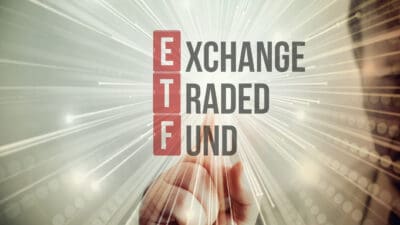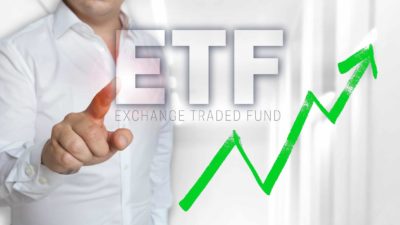Investors in the BetaShares Asia Technology Tigers ETF (ASX: ASIA) would be fairly used to getting a performance that bests the S&P/ASX 200 Index (ASX: XJO). After all, this is an ASX ETF that has managed to give investors an average return of 24.4% per annum over the past 3 years. In contrast, the iShares Core S&P/ASX 200 ETF (ASX: IOZ), an index fund that tracks the ASX 200, has returned an average of 22.8% per annum over the same period.
Over November thus far, the ASX 200 has gone backwards by roughly 0.6%. So we can see this trend continuing somewhat, seeing as the ASIA ETF has given its investors a return of 1.42% over the same period. But it hasn't all been smooth sailing. ASIA spent the first half of the month giving its investors the kind of returns they might be used to, shooting up more than 7% by 17 November.
But since then, it has been a different story. At the end of that particular Wednesday, ASIA units closed at a price of $10.55. On Friday, those same units ended the day at $9.99. That's a slide of around 5.3%. So it's fair to say this ETF has spent a good chunk of November on struggle street.
So what might we blame this performance on?
ASIA ETF struggles in November
Well, to dig into that question, let's check out what kind of investments underpin ASIA's investing portfolio. Like all share-based ETFs, ASIA is a fund that invests in underlying shares. Unlike an index fund though, this ETF holds a relatively concentrated portfolio of 50 companies. According to BetaShares, these are selected to give investors exposure to "the 50 largest technology and online retail stocks in Asia (ex-Japan)."
So ASIA's current largest holdings (and their fund weightings) are as follows:
- Taiwan Semiconductor Manufacturing Company Ltd, with a weighting of 10.9%
- Samsung Electronics, with a weighting of 10.1%
- Tencent Holdings Ltd, with a weighting of 9.8%
- Alibaba Group Holding Ltd, with a weighting of 8.7%
- Meituan, with a weighting of 6.7%
As you can see, even though ASIA already has a relatively concentrated portfolio, its 5 largest holdings make up almost half (46.2%) of this ETF's portfolio. That means they have a massive influence on how this ETF performs.
So, let's check out how these stocks have been travelling over November so far.
Taiwan Semiconductors has put on roughly 3% since the end of October.
Samsung is up 3.58%.
Tencent is down 3.66%.
Alibaba has lost a nasty 19.15%.
And Meituan has lost 2.2%.
As you can gather, it's the Chinese e-commerce giant Alibaba that we can probably blame for ASIA's struggles over November (particularly the back half of the month). A near-20% decline of an ETF's fourth-largest holding is going to put a dent in its performance, especially if the other major holdings don't have an explosive month of gains to make up for it. This is the most probable reason why ASIA has had such a lukewarm month.
The BetaShares Asia Technology Tigers ETF charges a management fee of 0.67% per annum.









